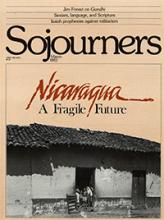The following is excerpted from an interview with Gustavo Parajon, a Baptist pastor and the president of the Evangelical Committee for Aid and Development (CEPAD), which represents most of Nicaragua's evangelical churches. As a medical doctor, Parajon directs the Provadenic clinic program, which serves the poor in urban and rural areas of Nicaragua and offers training in health care. --The Editors
What has the revolution meant for the people of Nicaragua, the church in Nicaragua, and for you as a doctor, pastor, and church leader?
Before the earthquake in 1972, I was practicing internal medicine at the Baptist hospital. I had had training in both internal medicine and public health, and I was very dissatisfied with my ministry, because I knew I was not reaching the people whom I had studied to serve.
In my practice I saw very wealthy people, many from the American embassy. What bothered me was the fact that the great majority of our people had absolutely no medical care available to them. So I started to go two or three days a week out into the rural areas. But after a few years I was very discouraged to realize that despite the fact that I was going there, nothing changed. I saw the same illnesses over and over. It was obvious to me that something had to change the societal structure.
The earthquake provided a reference point for us evangelicals to begin a broader ministry. All we were trying to do was reach the people who were exploited, who had no money or land. We wanted to see everyone get decent medical care and health education.
Read the Full Article

